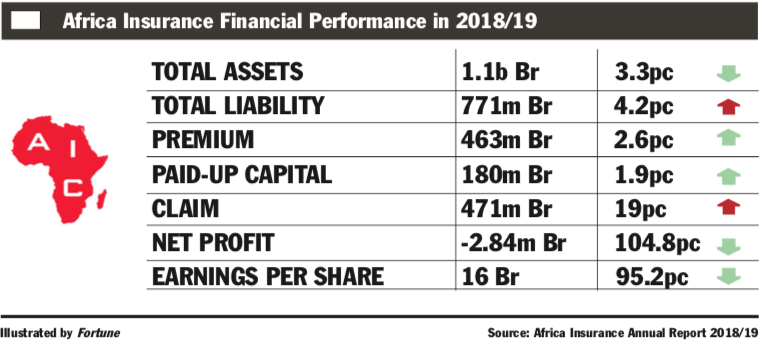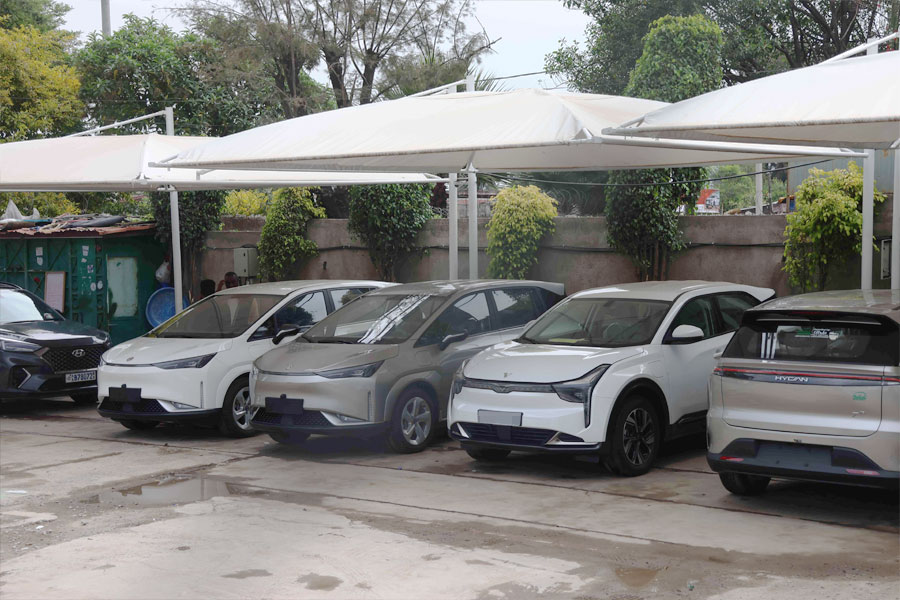
Covid-19 | Apr 04,2020
Oct 26 , 2019
By
Africa is not on track to meet both the Malabo Declaration calling for the eradication of hunger and malnutrition by the year 2025 or the Sustainable Development Goals that aim to end hunger, achieve food security and improved nutrition by 2030.
Despite being crucial to Africa’s development, the agriculture sector is performing well below its potential. Even with the highest area of uncultivated arable land in the world, which is about 50pc of the global total, productivity lags far behind other developing regions.
Currently, human muscles provide over 60pc of farm power, mostly from women, the elderly and children. The drudgery of traditional farming practices contributes to the widening gender gap in African agriculture. As a result, women lack the resources and opportunities they need to make the most productive use of their time, which hinders their productivity and reduces their contributions to the agriculture sector and the achievement of broader economic and social development goals.
To reverse the situation, mechanization is the low-hanging fruit to increasing agriculture productivity, as highlighted in recent studies and high-level dialogues. Development actors including the African Union Commission (AUC) and the Food and Agriculture Organization of the United Nations (FAO) have been working towards pushing the agenda to the highest-level policymakers.
FAO and AUC have jointly developed a framework that aims to increase agricultural efficiency and reduce drudgery by helping countries in Africa to develop strategies for sustainable farm mechanisation. "Sustainable Agricultural Mechanization: A Framework for Africa" is a result of continuous and thorough discussions among high-level policymakers and experts of the AU Member States, the AUC, FAO and other partners in the fields of food and agriculture.
Inspired by the former AU Chairperson Nkosazana Dlamini Zuma’s (PhD) campaign to “confine the hand-held hoe to the museum”, the AUC and FAO in collaboration with the Government of Burkina Faso, held a symbolic event with the erection of a monument in Bobo Dioulasso, Burkina Faso, on October 15, 2019. The event aimed to sensitise policymakers to influence policies that promote agricultural mechanization in Africa to reduce the drudgery in agriculture, especially by women.
Moving forward, farmers in Africa should be able to use modern agricultural technology, both digital and mechanical, to boost the agricultural sector sustainably. Doubling agricultural productivity and eliminating hunger and malnutrition in Africa by 2025 will be no more than a mirage unless mechanization is accorded utmost importance. Crop yields must increase substantially over the coming decades to keep pace with food demand driven by population growth and rapid urbanisation in Africa.
The new framework should be translated into action. Member countries should work towards designing and formulating policies and strategies for sustainable agricultural mechanisation in Africa covering three aspects of sustainability of agricultural mechanisation interventions: commercial, environmental and socio-economic. Countries need to prioritise policy environments that support the establishment and operation of viable and sustainable businesses.
Governments should prioritise profitable value chains for mechanization, and countries should target a few priority commodities that can easily be mechanized, such as cereals (maize, wheat, and rice, for example) that can lead to substantial increases in total factor productivity. Mechanization must be linked to market-oriented enterprises that can generate the necessary cash flow to cover capital costs and facilitate any loan repayments.
Given the small size of many domestic markets for agricultural machinery and implements, regional cooperation will be necessary for the implementation of many activities to attain economies of scale and scope, as well as to create sustainable organisations and institutions.
Strengthening the institutional infrastructure that supports the development of agricultural mechanisation at the national, sub-regional and regional levels is an important step. This would require the strengthening of coordinating mechanisms at all levels.
Africa has to shift to mechanisation from the drudgery of traditional farming to close the gender gap, absorb the growing mass of its young population, for whom agriculture is the best employment prospect, and in the end to meet the Malabo Declaration and the Sustainable Development Goals, simultaneously.
PUBLISHED ON
Oct 26,2019 [ VOL
20 , NO
1017]

Covid-19 | Apr 04,2020

Advertorials | Jul 08,2024

Fortune News | Jan 11,2020

Commentaries | Apr 26,2025

Commentaries | Nov 27,2021

Featured | Sep 29,2024

Addis Fortune | Mar 28,2020

Commentaries | Mar 20,2021

Viewpoints | Sep 19,2020

Viewpoints | May 18,2024

My Opinion | 132038 Views | Aug 14,2021

My Opinion | 128435 Views | Aug 21,2021

My Opinion | 126362 Views | Sep 10,2021

My Opinion | 123981 Views | Aug 07,2021





Dec 22 , 2024 . By TIZITA SHEWAFERAW
Charged with transforming colossal state-owned enterprises into modern and competitiv...

Aug 18 , 2024 . By AKSAH ITALO
Although predictable Yonas Zerihun's job in the ride-hailing service is not immune to...

Jul 28 , 2024 . By TIZITA SHEWAFERAW
Unhabitual, perhaps too many, Samuel Gebreyohannes, 38, used to occasionally enjoy a couple of beers at breakfast. However, he recently swit...

Jul 13 , 2024 . By AKSAH ITALO
Investors who rely on tractors, trucks, and field vehicles for commuting, transporting commodities, and f...

Jul 12 , 2025
Political leaders and their policy advisors often promise great leaps forward, yet th...

Jul 5 , 2025
Six years ago, Ethiopia was the darling of international liberal commentators. A year...

Jun 28 , 2025
Meseret Damtie, the assertive auditor general, has never been shy about naming names...

Jun 21 , 2025
A well-worn adage says, “Budget is not destiny, but it is direction.” Examining t...

Jul 13 , 2025 . By YITBAREK GETACHEW
The Addis Abeba City Revenue Bureau has introduced a new directive set to reshape how...

Jul 13 , 2025 . By BEZAWIT HULUAGER
Addis Abeba has approved a record 350 billion Br budget for the 2025/26 fiscal year,...

Jul 13 , 2025 . By RUTH BERHANU
The Addis Abeba Revenue Bureau has scrapped a value-added tax (VAT) on unprocessed ve...

Jul 13 , 2025 . By NAHOM AYELE
Federal lawmakers have finally brought closure to a protracted and contentious tax de...